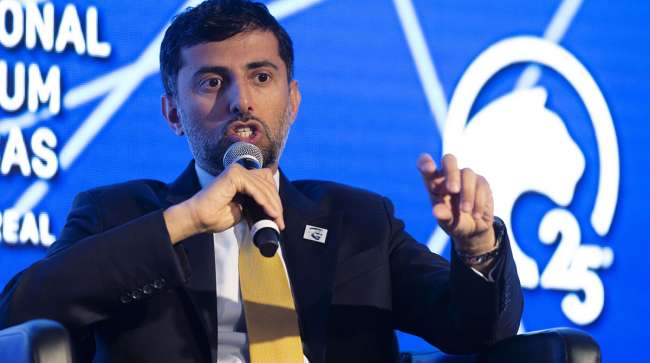OPEC+ Can Proceed With Reviving Supply, Key Members Say

[Stay on top of transportation news: Get TTNews in your inbox.]
OPEC and its allies can likely continue reviving oil production, two key Middle East members said as the group prepares to consider its next supply hike.
“The plan is working, we’re gradually increasing and the market is absorbing it,” United Arab Emirates Oil Minister Suhail Al-Mazrouei said on Sept. 21 at the Gastech conference in Dubai. “I don’t see any reason why we should deviate from that.”
Mazrouei’s view echoes comments from his Iraqi counterpart over the weekend, as well as delegates from several other OPEC+ nations speaking privately.

Drivers want good health and education on emerging technologies. Paul Beavers of PCS Software and Dr. Bethany Dixon of Drivers Health Clinic share their insights. Hear a snippet above, and get the full program by going to RoadSigns.TTNews.com.
The 23-nation OPEC+ coalition is restoring crude supplies halted when the pandemic crushed global fuel demand last year. The group, led by Saudi Arabia and Russia, will meet Oct. 4 to review the next monthly increment of 400,000 barrels a day.
Other prominent voices from the alliance agreed that the group can continue with this plan.
“We already agreed we would be giving some additional quota to all the countries on a month-by-month basis, so we will just be doing that for now,” Nigeria’s minister of state for petroleum, Timipre Sylva, said in an interview. The group will proceed cautiously and if “for any reason we see demand is slacking then we’ll have to do something about reducing our quotas.”
Nigeria is currently producing below its OPEC quota because of difficulties related to oil export terminals, Sylva said. The country is working to resolve those “technical” issues and expects to reach its output target within a month, he said.
Iraqi Oil Minister Ihsan Abdul Jabbar said Sept. 19 that he expects the Organization of Petroleum Exporting Countries and its partners to stick to plans for a November crude-production increase if prices stay at current levels, though it’s too early to determine the result of the group’s meeting next month.
Benchmark Brent crude is currently trading around $75 a barrel, up about 45% this year. The market will remain in balance through the first quarter of 2022 — with oil hovering around $70 a barrel — if OPEC+ keeps its plans, Jabbar predicted.
Another boost in exports from OPEC would probably be welcomed by consumers, helping to offset losses in U.S. supply caused when Hurricane Ida battered the Gulf Coast last month. The storm initially shuttered 1.7 million barrels a day, and the industry is still struggling to restart many of the affected fields.
While global markets are experiencing tightness now, some forecasts point to a lull early next year. Morgan Stanley and Standard Chartered predict that OPEC+ will need to pause its monthly output boosts to prevent the formation of a new oversupply.
Mazrouei countered that view in his remarks on Sept. 21, saying that OPEC isn’t “concerned about a surplus” in the second quarter of 2022.
— Written by Anthony Di Paola, Grant Smith, Salma El Wardany and Verity Ratcliffe
Want more news? Listen to today's daily briefing below or go here for more info:




